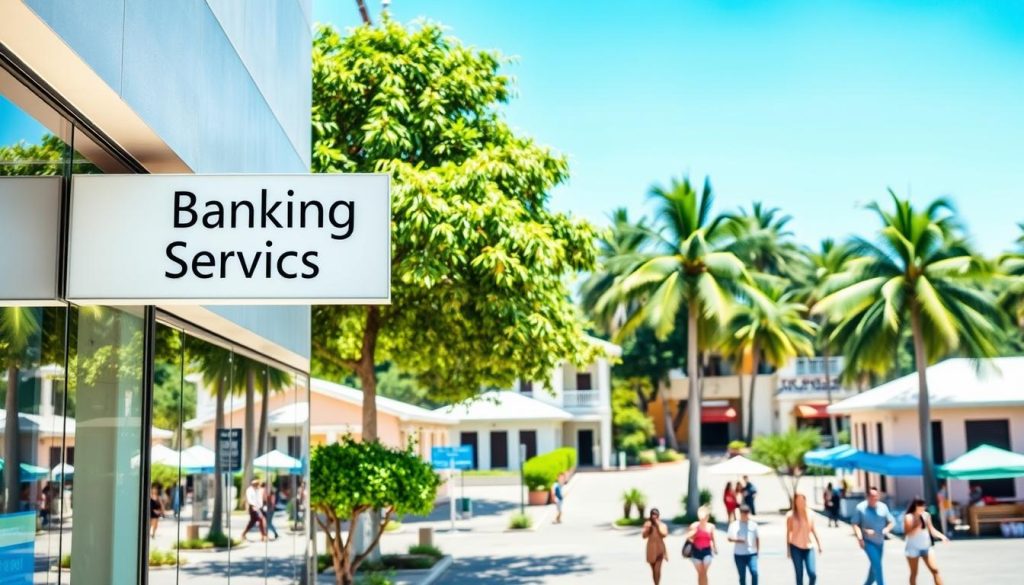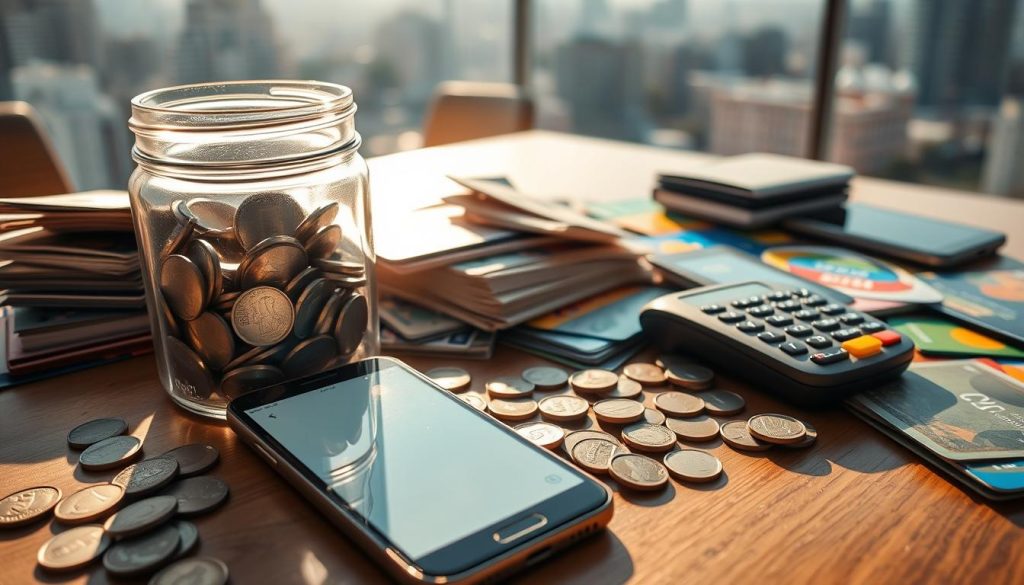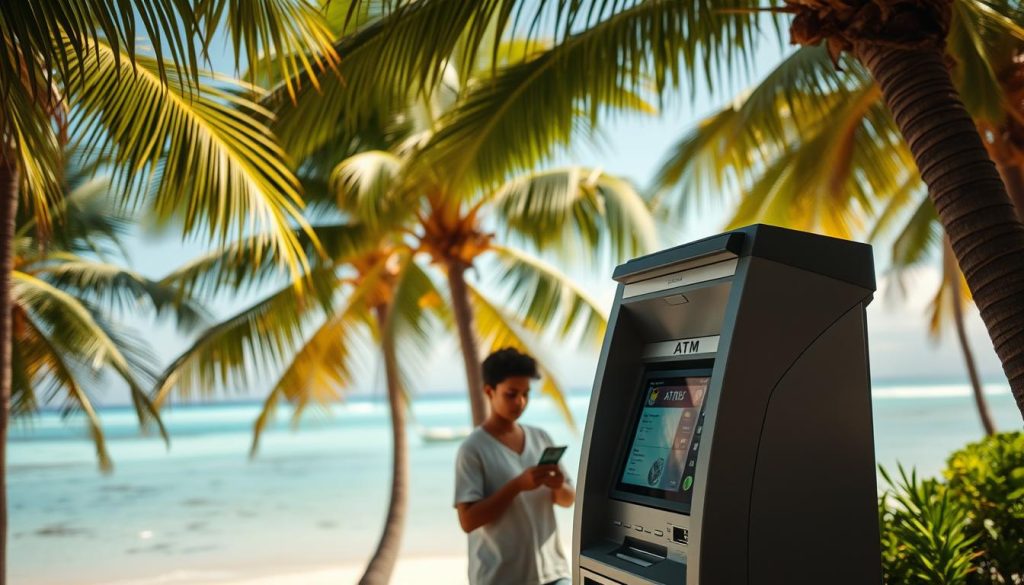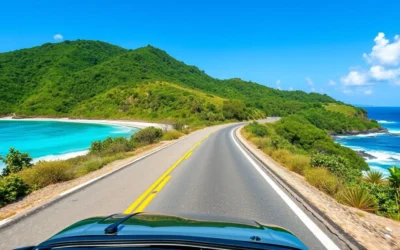Did you know that 89% of businesses rely solely on their payables team to manage cross-border foreign exchange processes? This highlights how crucial it is to understand currency basics before embarking on your next adventure.
Planning your finances in advance ensures you avoid unexpected surprises during your trip. Whether it’s understanding the local currency or knowing the best ways to exchange money, being prepared can make all the difference.
This guide will help you navigate the financial landscape of your destination. You’ll learn about cash and card usage, reliable exchange rate information, and practical tips to keep your budget on track.
By the end, you’ll feel confident and ready to explore without worrying about hidden fees or unfavorable rates. Let’s dive in and make your travel experience seamless and stress-free!
Understanding Christmas Island’s Currency Landscape
Understanding the financial system of your destination is key to a smooth trip. On Christmas Island, the local currency is the Australian Dollar (AUD), which is widely accepted and used for all transactions. Knowing the basics of this currency and its denominations can help you manage your finances effectively.
Currency Basics and Local Denominations
The Australian Dollar comes in both coins and banknotes. Coins range from 5 cents to $2, while banknotes are available in $5, $10, $20, $50, and $100 denominations. Familiarizing yourself with these can make everyday transactions easier.
Here’s a quick breakdown of the AUD denominations:
| Type | Denominations |
|---|---|
| Coins | 5c, 10c, 20c, 50c, $1, $2 |
| Banknotes | $5, $10, $20, $50, $100 |
Historical Ties and Financial Stability
Christmas Island’s financial system is deeply rooted in its historical ties to Australia. This connection ensures a stable currency and reliable banking services. The island’s economy benefits from this relationship, providing travelers with a secure financial environment.
“The stability of a currency often reflects the strength of its historical and economic ties.”
Understanding these ties can help you appreciate the value of the local currency. It also highlights the importance of carrying both cash and a card for flexibility in payments.
Local banking services are efficient and cater to both residents and visitors. ATMs are widely available, and most businesses accept card payments. However, having some cash on hand is always a good idea, especially in smaller establishments.
By grasping the currency landscape, you can plan your finances better and enjoy a hassle-free trip. Whether you’re using cash or a card, being prepared ensures you make the most of your travel experience.
Navigating Payment Options on the Island
Managing your finances while traveling can make or break your experience. On the island, you’ll find a mix of traditional and modern payment methods. Understanding these options ensures you’re prepared for any situation.
Using Cash Versus Credit and Debit Cards
Both cash and cards have their advantages. Cash is ideal for smaller transactions, especially in local markets or rural areas. It’s also helpful when businesses don’t accept cards.
On the other hand, cards offer convenience and security. Visa and Mastercard are widely accepted in tourist areas. Using a card can also help you track your spending more easily.
Here’s a quick comparison:
| Payment Method | Best For |
|---|---|
| Cash | Small transactions, rural areas |
| Cards | Tourist areas, tracking expenses |
Availability of ATMs and Digital Solutions
ATMs are widely available on the island, making it easy to withdraw local currency. Look for ATMs near banks or major tourist spots for better service.
Digital payment solutions are also gaining popularity. Mobile banking apps and prepaid cards allow you to manage your funds efficiently. These options can save you from high international fees.
Here are some practical tips:
- Carry a mix of cash and cards for flexibility.
- Use ATMs at banks for better exchange rates.
- Check for international fees before using your card.
Balancing both payment methods is key to a smooth trip. By planning ahead, you can avoid unnecessary stress and focus on enjoying your journey.
Local Banking Services and Currency Exchange
Handling your finances abroad starts with knowing where and how to access banking services. Local banks and currency exchange offices are essential for managing your money efficiently. By understanding their operating hours and services, you can plan your transactions effectively.

Bank Operating Hours and Services
Local banks typically operate from 9 AM to 4 PM on weekdays, with limited hours on weekends. It’s best to visit early in the day to avoid long waits. Most banks offer services like cash withdrawals, currency exchange, and account inquiries.
Here’s a quick overview of what to expect:
| Service | Availability |
|---|---|
| Cash Withdrawals | Yes |
| Currency Exchange | Yes |
| Account Inquiries | Yes |
Exchange Rate Insights
Getting the best exchange rate requires a bit of planning. Always check the current rates online or at a reliable office before making a purchase. Banks often offer better rates than airport kiosks or tourist areas.
Here are some tips for favorable exchanges:
- Compare rates at multiple locations.
- Avoid exchanging large amounts at airports.
- Use ATMs for better rates and convenience.
By following this guide, you can ensure you’re getting the most value for your money. Whether you’re using cash or cards, being prepared makes all the difference.
Traveler Tips for Efficient Currency Exchange
Smart planning can save you both time and money when exchanging currency abroad. By following a few simple steps, you can avoid high fees and ensure you get the best rates. Here’s how to make the most of your financial planning.
Start by checking international transaction fees with your credit provider. Many banks charge extra for foreign transactions, so it’s worth comparing options. Some cards offer lower fees or even no fees at all, making them a cost-effective choice.
Next, compare exchange rate offers before purchasing cash. Rates can vary significantly between banks, exchange offices, and ATMs. Online tools like XE Currency Converter provide real-time data to help you find the best deal.
“A little research can save you a lot of money when exchanging currency.”
Here are some practical tips to keep in mind:
- Use ATMs at banks for better rates and lower fees.
- Avoid exchanging large amounts at airports, where rates are often less favorable.
- Carry a mix of cash and cards for flexibility in different situations.
By taking these steps, you can manage your finances efficiently and avoid unwanted surprises. Thorough planning ensures a smooth and stress-free travel experience.
Using Cash Cards and Credit Options Abroad
When traveling abroad, choosing the right payment methods can significantly impact your budget and convenience. Specialized cash card solutions and smart credit options can help you save money and streamline your spending. Let’s explore how these tools work and why they’re worth considering.
Benefits of Cash Card Solutions
Cash cards are prepaid cards that allow you to load funds in advance, often at a favorable exchange rate. They’re widely accepted at ATMs and merchants, making them a versatile option for travelers. Unlike traditional cards, they’re not linked to your bank account, adding an extra layer of security.
Here’s a comparison of traditional card payments and digital cash cards:
| Payment Method | Costs | Convenience |
|---|---|---|
| Traditional Cards | 3% foreign transaction fee | Widely accepted |
| Cash Cards | No foreign transaction fees | Secure and flexible |
Avoiding International Transaction Fees
International transaction fees can add up quickly, but there are ways to minimize them. Using a cash card or a credit card with no foreign transaction fees is a smart move. Always check your card’s terms before traveling to avoid unexpected charges.
Here are some strategies to reduce fees:
- Load your cash card in advance to lock in a favorable exchange rate.
- Use ATMs at banks to avoid high out-of-network fees.
- Carry a mix of cash and cards for flexibility in different situations.
By planning ahead and choosing the right tools, you can manage your finances efficiently and focus on enjoying your trip.
Practical Advice for Managing Both Cash and Digital Payments
Balancing cash and digital payments can make your trip smoother and more enjoyable. A well-managed system ensures you’re never caught unprepared financially. Here’s how to handle both methods effectively.

Start by carrying a mix of cash and cards. While digital payments are convenient, having some cash on hand is essential for smaller vendors or rural areas. This way, you’re covered in any situation.
Set up a backup payment method. For example, keep a prepaid card or a secondary credit card in case your primary card fails. This system ensures you’re never stranded without access to funds.
“A backup payment method is like an insurance policy for your finances.”
Track your expenses efficiently by using budgeting apps. These tools help you monitor spending across both cash and digital transactions. Setting aside emergency funds is also crucial for unexpected costs.
Here’s a quick guide to managing both methods:
- Use digital payments for larger purchases and tracking.
- Keep cash for small transactions and emergencies.
- Always have a backup card or prepaid option on hand.
By following these tips, you can enjoy a stress-free trip and focus on the experience rather than financial worries. A balanced approach ensures you’re prepared for every scenario.
Christmas Island: Ultimate Travelers Guide to Currencies & Payments
Preparing your finances before your journey ensures a stress-free experience. Understanding the local currency and payment options is key to avoiding surprises. Here’s a concise guide to help you plan effectively.
Start by carrying a mix of payment methods. While digital options are convenient, having some cash on hand is essential for smaller vendors or rural areas. This approach ensures you’re covered in any situation.
Review your bank and card options ahead of time. Check for international transaction fees and consider using a card with no foreign fees. This tip can save you money and simplify your trip.
“A little preparation goes a long way in ensuring a smooth financial experience during your travels.”
Here are some practical recommendations:
- Compare exchange rates before converting currency to secure the best deal.
- Use ATMs at banks for better rates and lower fees.
- Set aside emergency funds for unexpected expenses.
By following these tips, you can approach your trip with confidence, knowing your finances are well-managed. Proper planning ensures you can focus on enjoying your journey without financial worries.
Understanding Local Payment Culture and Etiquette
Navigating the local payment culture can greatly enhance your travel experience. Knowing how to handle transactions respectfully and understanding tipping customs can make your interactions smoother and more enjoyable.
Respectful Transaction Practices
When making a purchase, always engage politely with vendors. A simple “thank you” or a smile can go a long way. In smaller establishments, using cash is often preferred, so carry some for convenience.
Here’s a quick guide to respectful transactions:
- Always greet the vendor before starting a transaction.
- Count your cash discreetly to avoid appearing distrustful.
- Be patient, especially in busy markets or small shops.
Customary Tipping and Payment Behaviors
Tipping is a common practice in many places. In a restaurant, a tip of 5-10% is customary. For taxi rides, rounding up the fare is appreciated. Always check if a service charge is already included before tipping.
Here’s a breakdown of tipping norms:
| Service | Suggested Tip |
|---|---|
| Restaurant | 5-10% of the bill |
| Taxi | Round up the fare |
| Hotel Staff | $2-5 per service |
Using a card is convenient, but always carry some cash for smaller transactions. This ensures you’re prepared for any situation. By following these practices, you’ll not only manage your finances better but also leave a positive impression on locals.
Safety Tips for Handling Your Finances
Keeping your money safe while traveling is essential for a worry-free trip. By following a few simple steps, you can protect your finances and focus on enjoying your experience.
Start by safeguarding your cash and credit cards. Avoid carrying all your money in one place. Instead, split it between different pockets, bags, or even among travel companions. This reduces the risk of losing everything at once.

Use secure systems like money belts or hidden pouches. These items keep your valuables close and out of sight, making it harder for thieves to target you. For added safety, keep a backup card or some emergency cash in a separate location.
“A little preparation can save you a lot of stress when it comes to financial security.”
Monitor your accounts regularly. Check your transaction history to spot any unauthorized charges. If you notice anything suspicious, report it to your bank immediately. This quick action can prevent further issues.
When using ATMs, choose well-lit, secure locations. Opt for machines inside banks or busy areas. Avoid standalone ATMs in quiet spots, as they may be more vulnerable to tampering.
Here are some additional tips to enhance your safety:
- Notify your bank about your travel plans to avoid card blocks.
- Use ATMs from major banks for better exchange rates and lower fees.
- Carry only the cash you need for the day to minimize loss.
By taking these precautions, you can ensure a smooth and secure financial experience during your travels. A little time spent planning can make all the difference.
Strategies for Currency Conversion on the Go
Staying updated on currency changes can make your travels smoother and more cost-effective. With the right tools, you can track live exchange rates and make informed decisions about your spending. This ensures you get the best value for your money.
Using currency converter apps is a smart idea for travelers. Apps like XE and Wise provide real-time information on exchange rates, helping you check and calculate amounts accurately. These tools are especially useful when you’re on the move.
“Having access to live exchange rates ensures you’re always in control of your finances.”
Here’s how these apps can help:
- Track live exchange rates to optimize your purchases.
- Calculate amounts in local currency for better budgeting.
- Access detailed information during transactions for convenience.
Carrying some cash is still a good practice, but digital tools add an extra layer of flexibility. By integrating these apps into your travel routine, you can manage your finances with ease and confidence.
Budgeting Tips for Your Trip to Christmas Island
Creating a realistic budget for your journey ensures you stay on track financially. Proper planning helps you manage your costs effectively, whether it’s for your hotel or daily expenses. By breaking down your spending, you can avoid overspending and enjoy a stress-free trip.
Pre-trip Financial Planning
Start by estimating your total expenses. Include accommodation, meals, transportation, and activities. Allocate a daily budget for cash purchases, especially in areas where cards may not be accepted. This approach ensures you’re prepared for any situation during your visit.
Here’s a quick comparison of budgeting methods:
| Method | Pros | Cons |
|---|---|---|
| Daily Budget | Easy to track | Less flexible |
| Category Budget | Detailed planning | Time-consuming |
“A well-planned budget is your best tool for a worry-free trip.”
Set aside emergency funds for unexpected expenses. This safety net can cover anything from last-minute changes to unforeseen costs. Tracking your spending daily helps you stay within your budget and adjust as needed.
Here are some practical tips for managing your finances:
- Use budgeting apps to monitor your expenses in real-time.
- Carry a mix of cash and cards for flexibility.
- Compare prices for accommodations and activities to get the best deal.
By following these strategies, you can ensure a smooth and enjoyable trip. Thorough planning not only saves money but also allows you to focus on the experience rather than financial stress.
Integrating Local ATM and Cash Withdrawal Strategies
Planning your cash withdrawals strategically can save you time and money during your travels. Knowing where and how to access ATMs ensures you’re never short on local currency. Here’s how to make the most of your bank and ATM options.

Before heading into remote areas, withdraw enough cash to cover your needs. Many rural spots lack ATMs, so planning ahead is essential. Trusted bank ATMs are your best bet for secure transactions and favorable rates.
Private machines often charge higher fees, so stick to bank-affiliated ATMs whenever possible. This option not only saves money but also reduces the risk of card skimming. Always check for any additional fees before completing your withdrawal.
To minimize fees, withdraw larger amounts less frequently. This strategy reduces the number of transactions and associated costs. Keep in mind that some ATMs have withdrawal limits, so plan accordingly.
In areas with limited ATM access, carry enough cash to last your stay. Use a money belt or hidden pouch for added security. This ensures your funds are safe while you explore.
“A little planning goes a long way in ensuring smooth financial transactions during your travels.”
Here’s a quick guide to ATM usage:
- Use bank ATMs for better rates and lower fees.
- Withdraw larger amounts to minimize transaction costs.
- Carry emergency cash for areas with limited ATM access.
By following these tips, you can manage your cash withdrawals efficiently and enjoy a stress-free trip. A knowledgeable approach ensures you’re always prepared, no matter where your travels take you.
Exploring Additional Payment Services and Options
Exploring alternative payment methods can transform your travel experience. Beyond traditional cash and cards, modern solutions like mobile payment apps and contactless options are gaining popularity. These services offer convenience and flexibility, especially in areas with limited banking access.
Mobile payment apps are a game-changer for travelers. They allow you to make transactions quickly and securely, even in remote areas. For example, apps like PayPal and Venmo are widely accepted and can simplify your financial management. Keeping an open mind toward these options can enhance your travel convenience.
In some countries, alternative payment methods like direct bank transfers or electronic wallets are more common. These services often have higher acceptance rates and lower fees compared to traditional methods. Embracing these ideas can save you time and money during your trip.
“Diverse payment options ensure you’re prepared for any financial situation during your travels.”
Here’s how these methods can benefit you:
- Use mobile apps for quick and secure transactions.
- Explore electronic wallets for lower fees and higher acceptance.
- Carry some cash as a backup for areas with limited digital access.
By integrating these modern payment solutions, you can enjoy a seamless and stress-free journey. A little preparation goes a long way in ensuring smooth financial transactions during your travels.
Advanced Financial Preparation for Remote Destinations
Traveling to remote destinations requires more than just packing your bags—it demands advanced financial preparation. Whether you’re exploring off-the-beaten-path locations or venturing into areas with limited infrastructure, having a solid financial system in place is crucial. This ensures you’re ready for any situation, from unexpected delays to emergency expenses.
Planning for Financial Emergencies
Emergencies can happen anywhere, but they’re more challenging in remote areas. Start by setting aside an emergency fund. This should cover unexpected costs like medical bills, transportation changes, or extended stays. A good rule of thumb is to budget at least 10-15% of your total trip expenses for emergencies.
Carry a mix of payment methods. While digital options are convenient, having cash on hand is essential in areas with limited bank access. Keep some in a secure location, like a money belt, for added safety.
“A well-prepared traveler is never caught off guard by financial surprises.”
Backup Payment Methods and Safety Protocols
Having backup payment methods is a must. Carry at least two cards from different accounts. This ensures you have a fallback if one card is lost, stolen, or blocked. Notify your bank about your travel plans to avoid any disruptions in card usage.
Use secure systems like mobile banking apps to monitor your accounts. Regularly check for unauthorized transactions and report them immediately. This proactive approach keeps your finances safe and under control.
Here’s a quick guide to financial safety:
- Carry a mix of cash and cards for flexibility.
- Use ATMs at trusted bank locations for secure transactions.
- Keep emergency funds in a separate, secure location.
By following these strategies, you can ensure a smooth and stress-free trip. Advanced preparation not only safeguards your finances but also lets you focus on enjoying your adventure.
Conclusion
Proper financial planning is the cornerstone of a stress-free travel experience. By managing your cash and card usage effectively, you can avoid unnecessary hassles and focus on enjoying your visit. This idea ensures you’re prepared for any situation, whether dining at a restaurant or exploring local attractions.
Reviewing the detailed information provided throughout this guide can help you make informed decisions. From using a cash card to understanding local payment customs, every handy tip adds value to your trip. Always check for the best exchange rates and carry a mix of payment methods for flexibility.
With careful planning, you can ensure a smooth and enjoyable journey. A well-managed financial plan not only saves money but also enhances your overall travel experience. Take the time to prepare, and you’ll reap the rewards of a stress-free adventure.
The above is subject to change.
Check back often to TRAVEL.COM for the latest travel tips and deals.






0 Comments